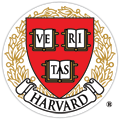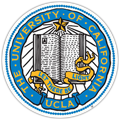Jump to navigation
Expedition Project Abstracts
2012
- An Expedition in Computing for Compiling Functional Physical Machines: MIT, U. Penn and Harvard; Lead PI Daniela Rus. Abstract: This project envisions a future where 3-D robotic systems can be produced and designed using 2-D desktop technology fabrication methods. Using a team of professional and highly skilled engineers, the process can be completely automated, from sketches on-demand, anywhere, and will thus lead to potential transformations in advanced manufacturing. ppm.csail.mit.edu
- Making Sense at Scale with Algorithms, Machines and People: UC Berkeley; PI Michael Franklin. Abstract: AMP will tackle the challenge known as the Big Data problem, in which current data analytics fall short in making sense of the volume, diversity and complexity of data being generated by computers, sensors and scientific instruments; media such as images and video; and free-form tweets, text messages, blogs and documents. The focus will be on key societal applications such as cancer genomics and personalized medicine, large-scale sensing for traffic prediction, enviromental monitoring, urban planning, and network security. amplab.cs.berkeley.edu
- ExCAPE: Expeditions in Computer Augmented Program Engineering: U. Penn, Cornell, MIT, UCLA, UIUC, U. Maryland, U. Michigan, UCB, and Rice; Lead PI Rajeev Alur. Abstract: The goal of this project is to change computer programming from the tedious, error-prone, purely manual task it has always been to one in which a programmer and an "automated program synthesis tool" collaborate to generate software that meets specifications. The team will bring together expertise in theoretical foundations, design methodology, and applications to pursue research focused on developing new computational engines for transformation and integration of synthesis artifacts, and effective methods for programmer interaction and feedback. https://excape.cis.upenn.edu
- Making Socially Assistive Robots: Yale, MIT, USC, and Stanford; Lead PI Brian Scassellati. Abstract: Fundamental computational techniques will enable the design, implementation and evaluation of robots that will encourage social, emotional and cognitive growth in children, such as those with social/cognitive defects and those from homes where a language other than English is spoken. Socially assistive robots will help guide children toward long-term behavioral goals that are customized to the particular needs of each child and that will develop and change as the child does. www.robotshelpingkids.org
2010
- Variability-Aware Software for Efficient Computing with Nanoscale Devices: UCSD, Stanford, UCI, UCLA, UIUC, and U. Michigan; Lead PI Rajesh Gupta. Abstract: As semiconductor manufacturers build ever smaller components, circuits and chips at the nanoscale become less reliabile and more expensive to produce, and no longer behave like precisely chiseled machines with tight tolerances. This project fundamentally rethinks the rigid and deterministic hardware-software interface and proposes a new class of computing machines that are not only adaptive, but also highly energy efficient. variability.org
- Computational Behavioral Science: Modeling, Analysis, and Visualization of Social and Communicative Behavior: GaTech, USC, Boston Univ., UIUC, CMU, and MIT; Lead PI James Rehg. Abstract: The long-term goal of this project is the creation of a new scientific discipline of computational behavioral science, which draws equally from computer science and psychology in order to transform the study of human behavior. For example, the social and communicative behavior of young children contains important clues about their risk for developmental disorders such as autism and ADHD. The ability to identify and treat such disorders at an early age significantly improves outcomes. By developing methods to automatically collect fine-grained behavioral data, we can enable the large-scale objective screening and effective therapy delivery and assessment to those in need. www.cbs.gatech.edu
- Understanding Climate Change: A Data Driven Approach: U. Minn, No. Carolina A & T, No. Carolina State, Northwestern, and U. of Tenn Oak Ridge Nat'l Lab; Lead PI Vipin Kumar. Abstract: Climate change is the defining environmental challenge facing our planet; however, due to the limited capabilities of existing physics-based models of the Earth system, there is considerable uncertainty regarding social and environmental impacts. This project aims to resolve these uncertainities by developing methods that take advantage of the wealth of climate and ecosystem data that is available from satellite and ground-based sensors, observational records for atmospheric, oceanic and terrestrial processes, and physics-based climate model simulations. climatechange.cs.umn.edu/
2009
- Complex Modeling and Analysis for Complex Systems (CMACS); originally titled Next-Generation Model Checking and Abstract Interpretation with a Focus on Embedded Control & Systems Biology: CMU, CUNY, NYU, Stony Brook, UMD, Cornell, and JPL; Lead PI Edmund Clarke. Abstract: Scientists and engineers will develop new computational tools to analyze and understand the behavior of the complex models they develop for application domains ranging from systems biology to embedded control. Project results are expected to provide vital tools that will enable health-care researchers to discover better treatments for disease and allow engineers to build safer aircraft and other complex systems. cmacs.cs.cmu.edu
- Customizable Domain-Specific Computing: UCLA, Rice, UCSB, and Ohio State; Lead PI Jason Cong. Abstract: Customized computing has the potential to deliver order-of-magnitude improvements in energy efficiency, development effort, time-to-solution, cost, and overall productivity by crafting computing tools tailored to specific applications and needs. The project team will apply their domain-specific computing design techniques to revolutionize the role of medical imaging and hemodynamic modeling in healthcare, promising cost-effective and convenient solutions for preventative, diagnostic, and therapeutic procedures. www.cdsc.ucla.edu
- RoboBees: A Convergence of Body, Brain and Colony: Harvard and Northeastern; Lead PI Robert Wood. Abstract: Researchers will create robotic bees (robobees) that fly autonomously and coordinate activities among themselves and the "hive" . . . much like real bees. The goal of this project is to drive research in compact high-energy power sources, ultra-low-power computing, and the design of distributed algorithms for multi-agent systems. RoboBees will provide unique insights into how Mother Nature conjures such elegant solutions to solve complex problems. robobees.seas.harvard.edu
2008
- Programmable Open Mobile Internet 2020: Stanford; Lead PI Nick McKeown. Abstract: We are moving into a new age of widely deployed, inexpensive, Internet-enabled mobile computing and communication devices which ultimately lead to a new generation of services, applications and modes of behavior. This project will promote innovation and competition by breaking down barriers and constructing bridges for enabling the creation of a truly programmable and open mobile Internet (POMI). http://pomi.stanford.edu/
- The Molecular Programming Project: Caltech and U. Washington; Lead PI Erik Winfree. Abstract: The ability to program molecules at many orders of magnitude larger scale than at present has the potential to change the way we analyze, understand and manipulate molecular systems. This can lead to applications of significant benefit to society across a wide range of national initiatives in materials, nano-biotechnology,and tissue engineering. molecular-programming.org
- Computational Sustainability: Computational Methods for a Sustainable Environment, Economy, and Society: Cornell, Bowdoin College, Oregon State, Conservation Fund, Pacific Northwest Nat'l Lab, and Howard Univ; Lead PI Carla Gomes. Abstract: Information and computing sciences will play a key role to increase the efficiency and effectiveness in the way humanity manages and allocates natural resources, Toward that end, the project will establish a new field of study and research called "computational sustainability" based on balancing environmental, economic, and societal needs for a sustainable future. This project will pursue three computational sustainability themes: conservation and biodiversity, balancing social-economic demands and the enviroment, and renewable energy. http://www.cis.cornell.edu/ics/
- Understanding, Coping With and Benefiting From Intractibility Collaborative Research: Princeton, Rutgers, New York Univ., and Institute for Advanced Study; Lead PI Sanjeev Arora. Abstract: Computational intractability imposes a limit on the ability to understand nature and design systems. This project will explore an array of diverse but interrelated topics in computational intractability, including algorithms, complexity, cryptography, analysis, geometry, combinatorics, and quantum mechanics. A "Center for Intractability" will be based at Princeton and will address some of the hardest theoretical problems standing in the way of sigtnificant advancements in computer science. intractability.princeton.edu


